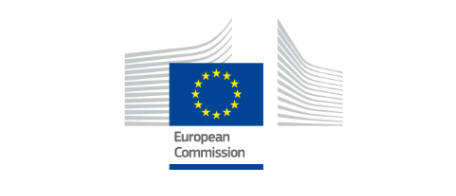|
September 2020 | Bulletin num.125 |
Subscribe
|

Study on the impact of the European Commission’s Memorandum of Understanding related to Industrial Property RightsOn August 14, the European Commission published two reports on the impact of the following Memoranda of Understanding (MoU):
The purpose of the Counterfeit Products MoU is to establish a code of practice in the fight against the sale of counterfeit products through the Internet and to improve collaboration between the signatories, in addition to Notice and Take-Down procedures. The MoU will also serve as an example for other stakeholders who are not signatories to this MoU. The MoU on Online Advertising and IPR, is a voluntary agreement facilitated by the European Commission to limit advertising on websites and mobile applications that infringe copyrights or display counterfeit products. The signatories to this MoU agree to minimize the placement of advertisements on websites and mobile applications that infringe copyright or spread counterfeit products. This will help reduce the revenue from these websites and applications. The signatories also commit to monitor the impact and effectiveness of the MoU in the online advertising market. The sale of counterfeit products remains a serious problem. Counterfeit products seek to mislead consumers, especially in terms of value and quality. Counterfeiters used to target luxury fashion items. Nowadays, this trend has changed and the range extends to technologically advanced products, as well as the simplest everyday products, such as cosmetics, toys, electronic devices, food and beverages, pharmaceuticals, and vehicle parts. In some cases, the impact on consumer health and safety can be significant. Many dangerous counterfeit products, such as toys, carry serious health and safety risks. The recent increase in counterfeit personal protective equipment related to Covid-19, pharmaceuticals, healthcare and sanitary products, for example face masks and test kits, have shown how counterfeit products can be harmful to health. The sale of counterfeit products can have significant negative economic consequences for European companies, including lost revenue and job losses, as well as damage to brand equity, high application costs, and reduced incentives to innovate. For governments, counterfeiting results in a loss of tax revenue and social security contributions. Counterfeit products also have a negative environmental impact, because counterfeiters rarely respect environmental regulations. Study on the impact of the MoU on online advertising and IPRs in the online advertising market. In addition to the previous reports, in August 2020, the European Commission published the first study that quantifies the evolution of online advertising on websites that infringe IPRs over time and monitors the impact of the MoU on the market of online advertising. The presence of conventional advertising for the main brands, as well as the availability of recognized payment services, on websites and applications that commit IPR infringement:
The MoU helps develop cooperation between ad brokers, advertisers, technology providers and industry associations to prevent ads from being placed on IPR infringing websites and applications. The study aims to quantify the evolution of online advertising on websites that infringe intellectual property rights over time and monitors the impact of the MoU on the online advertising market. It provides an indication of the scope and nature of the problem in different EU countries by analyzing, in particular, the types of advertisements, brand advertising sectors, and advertising intermediaries. It also compares the EU with the US over the same time period, providing a benchmark, and compares a subset of identical websites before and after the MoU was signed. The study can be found at the following link.
|
Table of contentsSubsidies for the promotion of patent and utility model applications. Open Call 2020OEPM-UIMP Course: Key Aspects of the Trademark Law Reforms and its Impact on Trademark Law-European Cooperation: New Project Support OfficeOEPM Agreements: CIEMAT and CEVIPYMEBlogPrimera participación virtual de la OEPM en la Feria de la Ciencia 2020 |